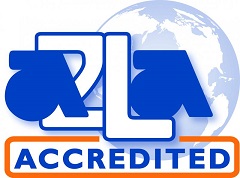The EQAPOL Limiting Antigen (LAg) Avidity Incidence Assay EQA program is the result of a collaboration between EQAPOL, the Centers for Disease Control and Prevention (CDC), and Blood Systems Research Institute (BSRI). The program assesses the proficiency of NIAID/DAIDS-supported and other interested research laboratories at performing the LAg incidence assay. Proficiency is assessed with the goal of helping all participating laboratories to perform the assay. Participating laboratories are required to complete two External Proficiency (EP) rounds per year.
As part of the program, EQAPOL provides the sites with a panel of human plasma samples to perform in the Sedia and/or Maxim LAg assays. Initial rounds of testing are aimed to collecting enough data to be used in the creation of grading criteria for future send-outs as well as evaluating site performance. Statistical assessment, troubleshooting, final report and discussion of results occur between participating laboratories and EQAPOL/NIAID. For each EP, sites are provided with a detailed report. Participating laboratories are blinded with a unique EQAPOL site ID, and each laboratory is unblinded with respect to only their data sets.
The EQAPOL Limiting Antigen (LAg) Avidity Incidence Assay Proficiency Testing Program is accredited to the International Organization for Standardization/ International Electrotechnical Commission (ISO/IEC) 17043:2010 standards by the American Association for Laboratory Accreditation (A2LA).

Once available, site reports for EQAPOL LAg can be accessed using the EQAPOL web-based application (https://eqapolapp.dhvi.duke.edu).